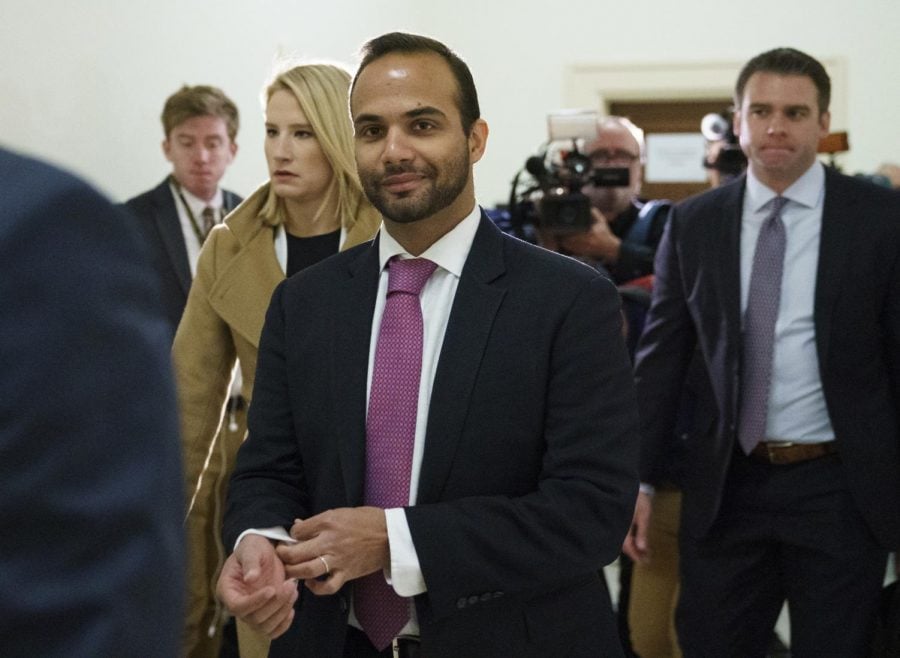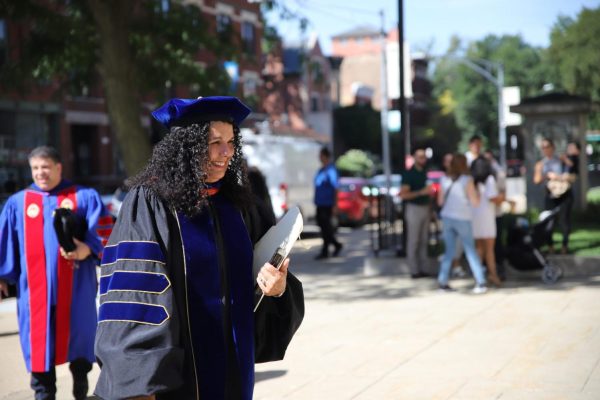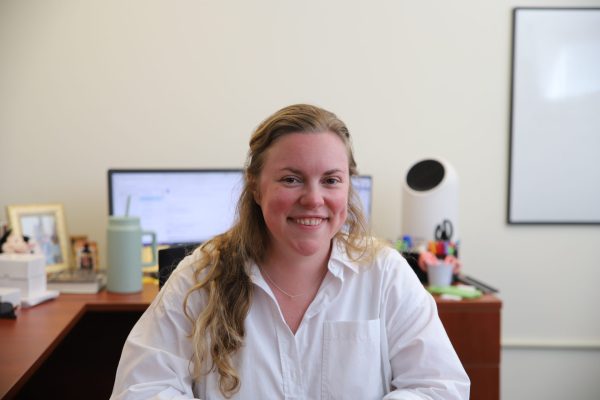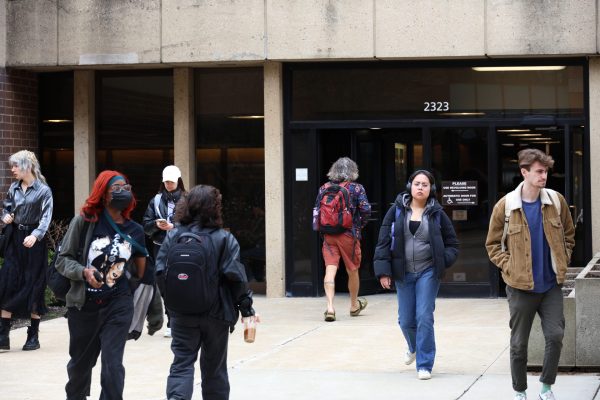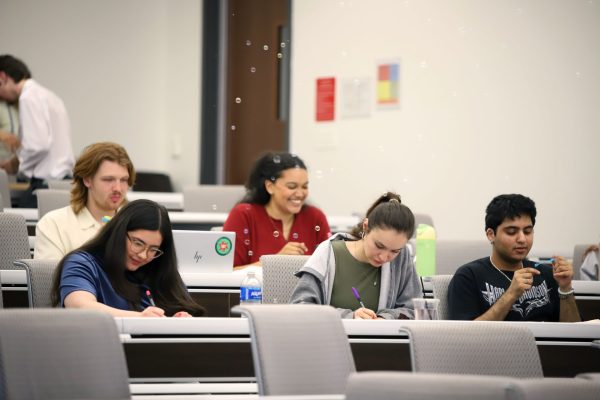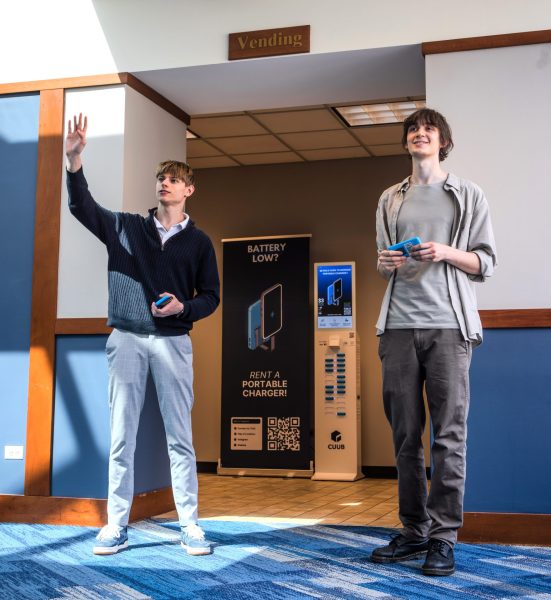New details emerge about DePaul alum’s role in Russia investigation
CAROLYN KASTER | ASSOCIATED PRESS
In this Oct. 25, 2018 file photo, George Papadopoulos, the former Trump campaign adviser who triggered the Russia investigation, arrives for his first appearance before congressional investigators, on Capitol Hill in Washington.
New information about how George Papadopoulos, a DePaul alumnus who became the unlikely match that sparked the Russia investigation, has come to light in Special Counsel Robert Mueller’s report, a redacted version of which was made public Thursday morning.
The report details how Papadopoulos, who graduated from DePaul in 2009 with a degree in political science, sought to establish connections between the Trump campaign and individuals who said the Russian government had “dirt” on Hillary Clinton in the form of thousands of hacked emails.
Papadopoulos was a foreign policy adviser for the Trump campaign from March 2016 to October 2016. He pled guilty to lying to the FBI about the specifics of his meetings with Russia-connected individuals on Oct. 5, 2017. He served 14 days in a federal prison.
Papadopoulos is actually the first person mentioned in the Mueller report. His name appears on page one, before even the president’s.
Among the revelations in the report is the fact that Papadopoulos was investigated as being a possible spy for the Israeli government. Ultimately, the Special Counsel’s office concluded there wasn’t enough evidence to charge Papadopoulos under the Foreign Agents Registration Act, which criminalizes unreported work for foreign governments.
The Russia investigation was kicked off when Papadopoulos received an email from a Maltese national with ties to Russia, Joseph Mifsud. Mifsud, a professor at the London Academy of Diplomacy, contacted Papadopoulos immediately after his return from a trip to Moscow.
When Mifsud and Papadopoulos met, the professor brought along someone named Olga Polonskaya, who Papadopoulos thought at the time was Russian President Vladimir Putin’s niece — but after googling “Putin’s niece” and “Olga Putin,” he found this not to be true, according to the Mueller report.
Mifsud had connections to the Internet Research Agency, the Russian agency that carried out a massive and concerted social media campaign to influence voters in the 2016 election, and the GRU, Russia’s military intelligence agency, according to the Mueller report.
One week after his meeting with Mifsud, Papadopoulos drunkenly told a representative of the Australian government, widely reported to be former high commissioner Alexander Downer, that he’d “received indications from the Russian government that it could assist the Campaign,” according to the Mueller report.
The foreign representative then notified U.S. authorities of the encounter, beginning the investigation into Russian election meddling and possible collusion between the Trump campaign and Russian government.
Dick Farkas, a political science professor who taught Papadopoulos, told The DePaulia after news broke of his arrest and guilty plea, that in his time at DePaul, Papadopoulos was a rather unremarkable student.
“He was pretty invisible and conventional. He was not really an outstanding student,” Farkas said.
When asked how Papadopoulos, at only 30, rose to foreign policy advisor to two presidential campaigns, Farkas said that if he was asked by a student how to reach that level after graduation, “I would have told them to go and get twenty years of experience in foreign policy, and the presidential candidate would find them. The sort of person who thinks they can do that has to be a little arrogant. I could see George thinking of himself like that.”
In another Chicago connection, the Mueller report says Papadopoulos met with Belarus businessman Sergei Millian at the downtown Trump Hotel and Tower in November 2016 to discuss private sector work in Russia. Papadopoulos told Mueller he had no recollection of his Facebook interactions with Millian, and Mueller was unable to get Millian to sit for an interview.


